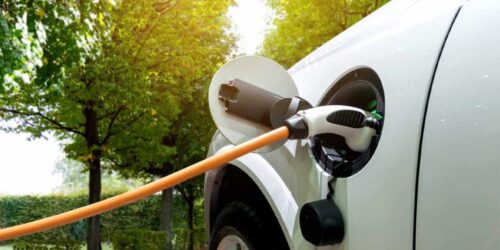When we think of EVs, we think of the future of the transportation system of the world. It is cool, and everyone wants it. However, when anyone sits around and analyses the feasibility of buying an Electric Vehicle (EV) in Pakistan, things are more complicated than they seem from the marketing videos.
The incumbent government has been very vocal about climate change and thus has been very proactive towards inculcating electric vehicles in Pakistan’s transport system. In August last year, Pakistan unveiled a plan to boost the share of electric vehicles to 30 percent by 2030, up from about 4 percent today.
Even though the electric policy will become more clearer in the Auto Policy 2021-26, which is expected to appear after June 30th, 2021, when the current Auto Policy 2016-21 will expire.
Certain reasons why the Pakistanis and people around the globe are slow to adapt to the new EV technology are below:
The biggest reason for the insecurity of people not considering EVs is the lack of infrastructure in Pakistan. One of the most important things for a person traveling between places is fuel and that requires gas stations. Similarly, EVs require charging infrastructure on highways to enable inter-city travel.
EVs have brought in a new concept of range anxiety, where people are unsure whether their car would actually make the next charging station as the charging time of an EV is variable to many factors such as acceleration, weather, battery size, and road smoothness among others.
Pakistan as of now only has a few charging stations across the country and those too, are located in Lahore, Karachi, and Islamabad. However, the government has incentivized Shell and PSO to develop the structure across the country. Moreover, BYD, a Chinese automotive company, has also planned for setting up charging stations in Pakistan which will be done in association with the leading oil company in the country, Total Parco.
Electricity Shortfall
Pakistan even today suffers electricity shortfall and the current industry in Pakistan has taken a big hit because of it. Adding a load of another big Transport industry onto the already sluggish supply of electricity can be troubling for Pakistan.
Thus, people are concerned about how such big charging stations would be managed in a country where the power is still scarce while making sure that the huge taxpaying, employment-giving industries in Pakistan do not have to compromise in their productivity.
Read More: Op-ed: Electric Vehicles (EVs) in Pakistan
However, the governments’ focus has been on managing the problem and Pakistan’s electricity production and according to media reports in the country, Pakistan now produces excess electricity compared to the national demand. The special assistant to the prime minister on power, Tabish Gauhar told Thomson Reuters Foundation in February, “It’s true. We are producing much more than we need.”
However, one-fourth of Pakistan’s population still does not get proper supply. According to the government, Pakistan will have about 38,000 MW of capacity within a few years compared to the demand peak of 12,000 MW.
This all points to an improvement in the future and increasing the possibility of the electric car becoming feasible in the Future.
Charging Time
It is the most talked-about thing in the EV industry across the world, with some brands marketing their low charging times, and others revealing the undergoing research on powerful batteries.
If we take the example of a person traveling to Karachi from Lahore, that is, 1230 KM approximately, and given the range of the premium EV available in Pakistan, Audi e-Tron, it will take the person five to 4 times of stops to charge the car (given the route has adequate infrastructure and range is 300).
Read More: Government considers establishing an Electric Vehicle (EV)Board
The charging time at a 150kW charger, which is amazing according to Audi Pakistan, would be 30 minutes to get it to 80 percent and to get it to 100 percent, it would take a total of 50 minutes. Given we charge the car to the fullest, it would take almost four hours of a break for an already tiring 1230 KM drive.
On the other hand, it would take 30 total minutes if gas refueling is done on the same route. This is a big no from people who travel intercity regularly, making the car infeasible.
Prices
Currently, EVs are very expensive for the Pakistani public, especially the long-range ones. The e-Tron currently costs PKR 16.2 million in Pakistan, which is a huge cost with the current infrastructure. However, MG and other companies in Pakistan are planning to introduce new cars in Pakistan, apparently the lower prices.
The problem is the trade-off between price and range right now. This is not the case for Pakistan only, but all around the world, this is the issue, as pricier models have bigger batteries and more efficient motors to run the car.
Given that these problems exist, Pakistan still has a long way to go before the EV infrastructure seeps into Pakistan. However, with all the new entrants in Pakistan, it is possible that Public-Private-Partnerships result in overcoming these problems. The only country to have dealt with these problems in neighboring China with the highest number of auto manufacturers going electric and huge demand for electric cars in the country. Maybe we could learn yet another thing from China.







